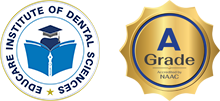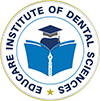Comprehensive Guide to BDS & MDS Courses for Students
In the realm of dental education, BDS (Bachelor of Dental Surgery) and MDS (Master of Dental Surgery) courses hold the key to a rewarding dentistry career. The BDS course, spanning five years, forms the bedrock of oral health knowledge, encompassing dental anatomy, radiology, and treatment basics. MDS, a specialized postgraduate pursuit spanning three years, offers a deeper dive into disciplines like orthodontics and periodontics. Dental colleges serve as gateways to this world of learning, equipping aspiring dentists to diagnose, treat, and prevent oral diseases—these courses, from general dentistry to specialized expertise, illuminate diverse paths toward a brighter dental future.
What are BDS and MDS?
BDS (Bachelor of Dental Surgery) is an undergraduate professional degree in the field of dentistry. It is a five-year program that equips students with a comprehensive understanding of oral health, dental anatomy, dental materials, oral pathology, radiology, and various dental treatments. BDS programs combine theoretical knowledge with hands-on clinical training, preparing students to become general dentists who can diagnose and treat common dental problems, perform dental procedures, and promote oral hygiene.
MDS (Master of Dental Surgery) is a postgraduate specialization degree in dentistry. After completing their BDS, students can pursue an MDS in a specific dental specialty. MDS programs typically span three years and offer in-depth training and expertise in areas like oral surgery, orthodontics, periodontics, prosthodontics, endodontics, and more. These programs focus on advanced clinical skills, research, and specialized treatments, allowing dentists to become experts in their chosen fields and provide specialized care to patients with complex dental issues.
Eligibility Criteria for BDS and MDS Courses
BDS Course Eligibility:
To be eligible for a BDS (Bachelor of Dental Surgery) course, candidates usually need to fulfill the following criteria:
Educational Qualification:
Candidates must have completed their higher secondary education (10+2) with a science background, including subjects like Physics, Chemistry, and Biology.
Minimum Qualifying Marks:
Different colleges and universities may have varying minimum percentage requirements in science subjects. Generally, a minimum of around 50-60% aggregate marks is required.
Entrance Exams:
Many institutions and countries conduct entrance exams for BDS admissions. For example, NEET (National Eligibility cum Entrance Test) is a common entrance exam in India for medical and dental admissions.
BDS Course Eligibility:
To be eligible for a BDS (Bachelor of Dental Surgery) course, candidates usually need to fulfill the following criteria:
Educational Qualification: Candidates must have completed their higher secondary education (10+2) with a science background, including subjects like Physics, Chemistry, and Biology.
Minimum Qualifying Marks:
Different colleges and universities may have varying minimum percentage requirements in science subjects. Generally, a minimum of around 50-60% aggregate marks is required.
Entrance Exams:
Many institutions and countries conduct entrance exams for BDS admissions. For example, NEET (National Eligibility cum Entrance Test) is a common entrance exam in India for medical and dental admissions.
MDS Course Eligibility:
To qualify for an MDS (Master of Dental Surgery) course, candidates should meet the following eligibility criteria:
BDS Degree:
Candidates must have successfully completed a BDS degree from a recognized dental college.
Internship Completion:
Many institutions require candidates to have completed a mandatory internship or house surgency period, typically lasting for one year, after completing their BDS.
Minimum Qualifying Marks:
Similar to BDS, candidates are usually required to have a minimum aggregate percentage (around 50-60%) in their BDS degree.
Entrance Exams:
Admissions to MDS courses often involve competitive entrance exams specific to the chosen specialization. Examples include AIIMS PG, NEET MDS, and various state-level entrance exams.
Scope and Career Opportunities in Dentistry after BDS and MDS
Dental Practice Options:
After completing BDS or MDS, dentists have a wide array of career paths to explore in the field of dentistry. For BDS graduates, options include establishing private dental clinics, where they can provide general dental care to patients. MDS graduates, with specialized expertise, can offer advanced treatments in their chosen dental specialties, such as orthodontics, periodontics, or oral surgery. Dental professionals can also work in partnership with hospitals, and healthcare centers, or collaborate with medical professionals for comprehensive patient care.
Government Jobs for Dentists:
Both BDS and MDS graduates can explore government job opportunities. Many countries have public healthcare systems that employ dentists to provide oral health services to the population. Government dental hospitals and clinics offer positions for dentists at various levels, from general practitioners to specialists. These roles provide job stability, benefits, and the chance to serve a diverse range of patients.
Teaching Opportunities:
For those interested in academia, teaching opportunities are available in dental colleges and universities. MDS graduates with a keen interest in research and education can become professors, lecturers, or researchers in dental institutions. Sharing their expertise with aspiring dentists not only contributes to the growth of the profession but also offers a fulfilling and intellectually stimulating career.
Specialized Practice and Consultation:
MDS graduates can choose to establish themselves as experts in their respective fields, providing specialized treatments and procedures. They can also offer consultation services to other dental professionals, referring complex cases for expert advice. This avenue allows for collaboration with peers and an extended network of dental practitioners.
Dental Industry and Corporate Roles:
The dental industry offers opportunities in dental product development, sales, and marketing. Graduates with a BDS or MDS background can work for dental equipment and supply companies, contributing to the advancement of dental technology and products. Corporate roles in healthcare management, dental insurance, and pharmaceutical companies are also potential career paths.
International Opportunities:
Dental professionals, particularly those with MDS qualifications, may explore opportunities to work abroad. Countries with shortages of dental specialists often attract professionals to fill gaps in their healthcare systems. This not only offers a chance to experience new cultures but also broadens one’s clinical and professional horizons.
Tips for Success in BDS and MDS Courses: Study Strategies & Beyond
Navigate BDS and MDS with precision using expert advice from the Educare Institute of Dental Science. Master time management skills to balance coursework, practical experience, and personal life. Embrace hands-on learning, gaining practical insights alongside theoretical knowledge. Stay proactive in seeking guidance from professors and peers, fostering a supportive learning community. Employ effective study strategies, such as creating study schedules, utilizing dental study resources, and participating in case discussions. Remember, success goes beyond books; cultivate interpersonal skills, professionalism, and a genuine passion for dentistry to excel in both education and practice.

